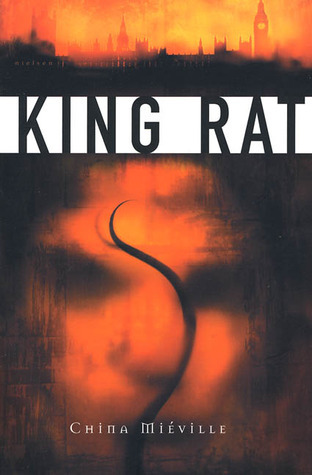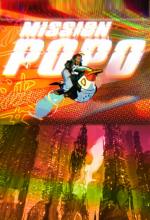2023 In Review
by Xian Mao
Like the Kesh of Ursula K. Le Guin’s Always Coming Home, I have moved in a spiral this year. I found peace and hope in its quiet fictional anthropology, and it has left me with a passage that captured regret and grief. Names in Kesh society change with a person’s growth. In “Stone Telling,” the narrator’s mother asks to be called by her previous name after her lover abandons her again. In that moment she goes from Willow to Towhee, from graceful tree to small songbird, she seems to shrink within the narrative. Loss has ripped away her growth. As someone who places significant value on the role of names, I ask myself, what does it mean to go back to who you once were, to let go of your current existence?
A confession: the investigative portions of Apollo Weeps, where Owl sits with minor characters and listens to their stories, was directly inspired by Jonni Phillips’ storytelling in her incredible film The Final Exit of the Disciples of Ascensia, where characters tell their backstories in long unbroken monologues animated by guest animators, many of whom also provide the voice acting for the character. Her most recent movie, Barber Westchester, was a great way to begin 2023. A continuation of her miniseries Secrets and Lies in a Town of Sinners, Barber barely addressed any of the questions raised in the series and instead focused on the titular character and their struggles as they leave their hometown and live in a world that actively rejects them (on the airplane ride to their new job at NASA, one of their arms falls off and gets flushed in the toilet). Phillips creates a rich landscape filled with struggles both mundane and extraordinary, where the most relatable facets of life are juxtaposed with the ridiculous, creating a rich emotional reality that is enthralling to exist in. I look forward to Phillips’ further work expanding the world she has created and joining it all together in her upcoming movie Take Off the Blindfold, Adjust Your Eyes, Look in the Mirror, See the Face of Your Mother.
China Miéville is an author I need to read more of. King Rat is exuberant, an exploration of non-human senses and leftist politics passed from father to son, through the lens of two things I love: music and rats. The final confrontation with the Piper ended in a cosmic twist common in the New Weird genre, but to me this one felt earned because it depended so much on how jungle music is played and listened to. Through this book I have made a small dive into the genre, and in doing so realized how much it has influenced much of my favorite video game music in the way tracks are layered and leitmotifs come and go.
This was a year of short stories. I loved revisiting the words of Banana Yoshimoto in Dead-End Memories and enveloping myself in the delicate way she describes pain. I picked up Bound in Flesh: an Anthology of Trans Body Horror and was immediately drawn into the first short story, “Wormspace,” where an understanding of BDSM and specifically subspace are necessary to truly appreciate the story’s nuances. I have circulated this short story among my friends and now I am regularly sent pictures of worms. This specific intersection between desire and horror was also felt in Cronenberg’s Crimes of the Future, which would have been on my list last year (along with Skinamarink) if I had made time to watch it then. There’s also a bittersweetness in discovering the French film Eyes without a Face only this year, as a quiet horror movie focused on forcing parental expectations and medical transformation on a masked protagonist feels like something written specifically to my tastes.
The short story that has inspired me the most this year was Samuel R. Delaney’s “Aye, and Gomorrah…” which focuses on spacers, bodies considered objects of perverse sexual lust for some due to the removal of their gonads. We sit with a spacer as they journey through different parts of the world, their body always an object of scrutiny and politicization. It’s easy to draw a line between the story and the current debate surrounding the use of gonadotropin inhibitors, or “puberty blockers,” in transgender and gender diverse adolescents. The short story gave me pause to think, if transgender and gender diverse individuals weren’t currently used as a political wedge, what would our existence look like in a society that continues to uphold capitalism, patriarchy, and white supremacy?
In other instances of old becoming new again, it was a small miracle to watch Nimona in movie form, after having followed the initial graphic novel while it was being published as a webcomic. The main character remains as wild and frenetic as ever, but it was interesting to see how ND Stevenson tackles the story now compared to when he wrote it at a much younger age, in a time both similar to and very different from now.
I stumbled onto the work of Czech surrealist filmmaker Jan Švenkmajer by chance, and I have been entranced ever since by how he combines real life with stop motion and claymation to distort our sense of reality. His works, especially his 1992 Food trilogy, fills me with a visceral reaction followed by cerebral analysis. I have always loved how animation can push the boundaries of what can be depicted visually. I have mentioned two animated projects already, and I will let others sing praises for Spiderman: Across the Spiderverse and Scott Pilgrim Takes Off. Instead, I want to highlight some excellent independent short animations that have left an impression on me. Many of these are student thesis films, which I love to watch as they are filled with passion and ambition.
• TEHURA by Wei Li: a pensive and heartrending exploration of having one’s culture commodified.
•
Rat Snacks by Anthony Kos: fluidly animated nonsense that puts Looney Tunes to shame
•
The Name by Alexander Aguilar: the perfect representation of the power of names, especially for transgender individuals
•
BOLAVK/WEREWOLF by Niko Mlynarčík and Štepánka Milulíková: a dark parable that sent me back to my teenage years
•
MISSION POPO by Jennifer Wu: cyberpunk grandma. Need I say more?
• Goodnight, Sweet Dreams! Pajama Mammal-Saur by Averi Roes-Kern: this simultaneously lulls me to sleep and makes the back of my neck prickle.
• Watchmaker at the End of Time by Sheriff Shaheen: there’s something so charming in the way characters move in the sketchy world where all the sound effects are made by the animator
• Midnight Garden by Sapphira Chen: this animation made me feel emotions known previously only to shrimp
• So Long, Caz! By Jingqi Zhang: another meditation on time. The ducks in fight reminded me of the bird scene in Night on the Galactic Railroad
•
Big Top Burger Season 2 by Ian Worthington: this series about a clown-themed food truck continues to be one of the funniest series on the internet, with a mind-boggling conclusion to surrealist hijinks.
•
Into the Wild by Little Dragon Studios: I talked about how influential the Warrior Cats series was last year, I might as well bring it up again this year with an amazing adaptation of the first book
Finally, two actual play series have been my faithful companions this year. Dimension 20 remains fun and engaging, with the most recent series Burrow’s End being among their best work. And I am slowly catching up to Friends at the Table, whose most recent season Palisade is both a continuation of previous season Partizan, named best mecha anime of 2020 by Crunchyroll, and a culmination of all the worldbuilding in their previous science fiction series, welded together in what is known to fans as the Divine Cycle. If Le Guin is to be believed and capitalism is set to fall like the divine right of kings, I want to continue pursuing art that asks the question, what happens next?
Speculative fiction has always been Xian Mao’s home. At the end of their college career, and the precipice of the 2016 election, their first short story, “Silk Moth,” was published in Dirty Birds Press’s Undercities anthology. Another short story, “Carry the Ocean,” was published in Strange Constellations. Their poetry has appeared in Aqueduct Press’s Climbing Lightly Through Forests, a poetry anthology celebrating the life and works of Ursula K. Le Guin. Le Guin, along with Terry Pratchett, Lawrence Yep, and Octavia Butler, are major influences in their writing, which often focuses on isolation, generational trauma, and contending with history.Aqueduct Press published their novella Apollo Weeps as a volume in the Conversation Pieces series earlier this year.





No comments:
Post a Comment